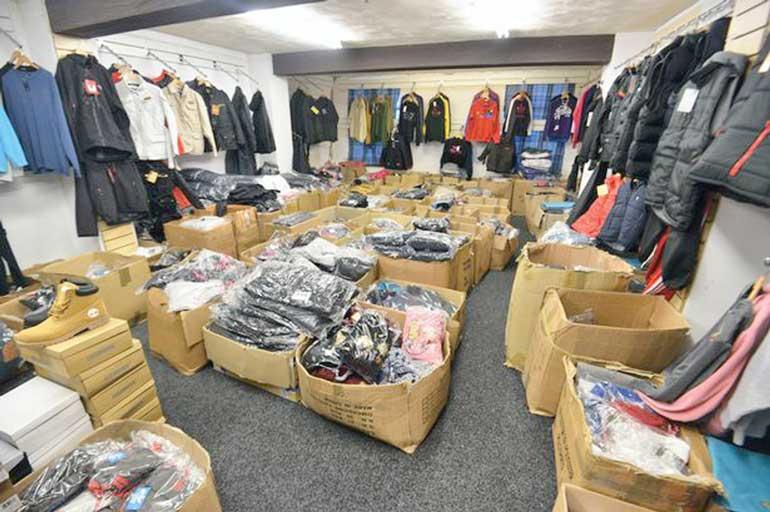17 Aug 2021 - {{hitsCtrl.values.hits}}

OECD in 2019 estimated that trade in global ‘fake goods’ was a hefty 3.3 percent of overall world trade
 Pursuant to the World Anti-Counterfeiting Day, which fell on June 8th, we are reminded of the severe impact and threat of counterfeit and pirated products on our lives and the economy.
Pursuant to the World Anti-Counterfeiting Day, which fell on June 8th, we are reminded of the severe impact and threat of counterfeit and pirated products on our lives and the economy.
The World Anti-Counterfeiting Daywas established by the Global Anti-Counterfeiting Group (GACG) to address the risks and damage caused by the counterfeit and piracy trade.
GACG’s day focusing on Anti-Counterfeiting is increasingly gaining in importance across the event calendars of global trade and Intellectual Property Rights (IPR) due to the level of unprecedented losses that are now mounting.
As recently as in 2019, the Organisation for Economic Co-operation and Development (OECD) estimates that trade in global ‘fake goods’ was a hefty 3.3 percent of overall world trade. Consequences of the counterfeit and piracy trade are extensive- lost taxes, royalties and other revenues, loss of jobs, loss of goodwill and reputation, and even loss of incentive to innovate and invest.
Real impact
Counterfeiting is often seen as a mere replication of products from top brands but practically, it needs to be evidenced in a wider perspective to gauge its real impact.
Counterfeiting in fact is not just limited to high-end products but impacts all industries from consumer goods, pharmaceuticals, medical equipment, electronics, children’s toys, garments and accessories to pesticides and motor vehicle parts. With the growth of social media and e-commerce platforms, there is a need for greater vigilance to safeguard consumers from purchasing illicit products, especially products which are made to ensure health and safety.
The Global Brand Counterfeiting Report, 2018 estimates that the losses suffered due to online counterfeiting worldwide has amounted to US$ 323 billion (2017).
With the ongoing covid-19 pandemic, we have witnessed a surge of counterfeit and substandard products at an alarming rate, especially through online platforms, with violators taking advantage of the urgent needs of the public. Pharmaceuticals, branded foods and many other branded items are at high risk of becoming immediate victims to counterfeiting during this pandemic.
Violators of IPR have become increasingly advanced and operate unregulated through untaxed smuggled imports and sales. These illegal profits are then in turn reinvested to further other illegal activities. Therefore, from holding platforms accountable, to acting against violators, and to being conscious consumers, we, as corporate leaders, brand owners and consumers, all have a duty to ensure that IPR are protected.
IP Act
In Sri Lanka, the Intellectual Property Act No. 36 of 2003 (IP Act), a comprehensive Act in line with the TRIPS Agreement, protects brand owners’ rights including copyrights, trademarks, patents and industrial designs.
The IP Act, describable as Sri Lanka’s principal bulwark against counterfeiting, provides for Civil and/or Criminal litigation including for trademark or copyright infringement, unfair competition, misleading trade practices, etc.
Further, the Customs Ordinance No. 17 of 1809 amendment strengthens the enforcement mechanism as Customs has ex-officio powers to seize and detain counterfeit / pirated goods contravening the IP Act. Accordingly, Sri Lanka has a robust IPR framework which recognizes the importance of effective enforcement of IPR for the protection of consumers and brand owners.
Still, for the IPR framework to be successful it is essential that the Law is applied –and enforced –across the board against all violators committing offences by the regulatory bodies vested with powers to enforce IP Laws in Sri Lanka.
It is here that trade, industry and consumers need to collectively stand as ‘one voice’ to combat the risk and damage caused by the onslaught of dangerous fake goods. Further, all stakeholders need to call for data and statistics on losses incurred due to counterfeiting, directly from the marketplace, industries and brands. Such a call can be a strong foundation for the nationwide Anti-Counterfeiting demand that is now the need of the hour in safeguarding our IPR.
I strongly believe that inculcating IPR protection at secondary education levels will help in educating young minds on the importance of IPR protection, as they are the future generation of inventors, creators and leaders of our nation.
Recalling the theme of IP and SMEs from the World IP Day of 26th April 2021, it is time to ensure that all innovations and inventions of the growing small business community, and of young inventors, are protected.
Local economy
Moreover, as the country focuses on increasing international trade and investment, IPR protection, along with investment protection, is of the utmost importance to ensure the development of the local economy.
The current commercial environment is such that potential investors will perform a thorough review of not only the IPR laws of a country but also the enforcement of such laws before committing to a country.
Therefore, as the global community unites to raise awareness of the negative impacts of counterfeiting and piracy during this World Anti-Counterfeiting week, it is time that we collectively get together as a nation of ethical global citizens to fight against violators to protect IPR in Sri Lanka.
(Sudath Perera is the Managing Partner of Sudath Perera Associates)
23 Dec 2024 2 hours ago
23 Dec 2024 3 hours ago
23 Dec 2024 6 hours ago
23 Dec 2024 8 hours ago